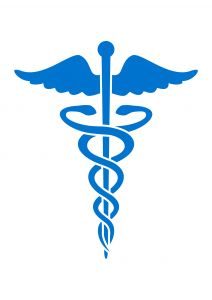 It is not uncommon in personal injury cases that some medical bills are paid by health insurance and Medicare. These payments should not be ignored by any of the parties to the personal injury case, especially the injured party.
It is not uncommon in personal injury cases that some medical bills are paid by health insurance and Medicare. These payments should not be ignored by any of the parties to the personal injury case, especially the injured party.
These sources must be repaid from the proceeds of any recovery made in the personal injury case. (Note: PIP, which is mandatory no-fault motor vehicle medical insurance, does not have to be reimbursed.)
While it may be possible to negotiate the repayments, it is, of course, important to know how much is owed. Making this determination can depend on when the payments were made in relationship to when the personal injury case was settled.
This cutoff date varies depending on the entity involved.
HEALTH INSURANCE: The cutoff date depends on whether or not the health insurance policy is subject to ERISA. If it is not, the lien ends at the date of settlement. See Florida’s collateral statute — 768.76. It is fairly well established (although not conclusively — see Coleman v. Blue Cross and Blue Shield of Alabama, Inc. So.3d , 35 FLW D2718 (Fla. 1st. DCA 12-8-2010) for a contrary view) — that the collateral source statute does not apply to ERISA plans. ERISA lien rights are controlled by the subrogation/reimbursement language in the Summary Plan Description (SPD). The SPD should be requested, but in all likelihood its provisions are expansive, allowing for the recovery of all charges related to the accident including those made post-settlement. The plan may provide that it is not responsible for covering post-settlement accident related care.
Because ERISA laws strongly favor the carriers, dealing with ERISA liens is never pleasant. Nevertheless, we drive a hard bargain. We sometimes begin negotiating by making a low ball offer to repay 30% of the lien amount coupled with a request that the insurance carrier agree to cover future accident-related medical expenses. Another approach is to argue for a 40+% discount to account for attorneys fees and costs incurred in securing the recovery.
Continue reading
 In the upcoming healthcare debate, watch carefully for a Republican shell game. In his 60 Minutes interview, Trump professed support for prohibiting insurance carriers from denying coverage for preexisting medical conditions. Left unsaid is whether carriers will be allowed to charge higher premiums based on preexisting conditions, a practice banned under the Affordable Care Act (a/k/a “Obamacare”).
In the upcoming healthcare debate, watch carefully for a Republican shell game. In his 60 Minutes interview, Trump professed support for prohibiting insurance carriers from denying coverage for preexisting medical conditions. Left unsaid is whether carriers will be allowed to charge higher premiums based on preexisting conditions, a practice banned under the Affordable Care Act (a/k/a “Obamacare”). Florida Injury Attorney Blawg
Florida Injury Attorney Blawg








